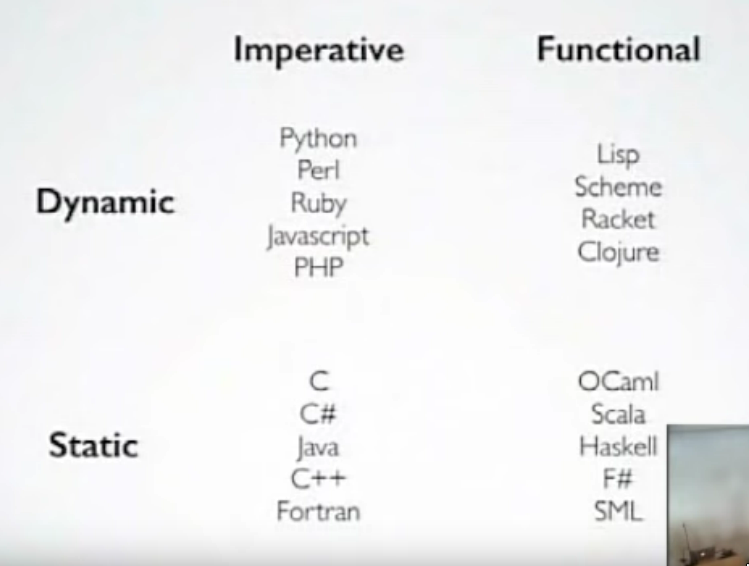tags : Parsers
Thus a language definition implies a model of the machine on which programs in the language will run. If a real machine conforms well to the model, then an implementation on that machine is likely to be efficient and easily written; if not, the implementation will be painful to provide and costly to use.
Via “Portability of C Programs and the Unix System”, S.C. Johnson and D.M. Ritchie
How they are made?
- C, FORTRAN, Java, Pascal, Lisp, Forth, Ada, Python, Ruby, Go, etc.: none of these languages are context-sensitive. None are context-free either. Programming languages are complicated
- Modern languages typically are defined in multiple levels
- L1: Defining the lexical structure, using something like Regular Expressions
- L2: Defining Context Free Grammar (CFG) or close to it
- L3: Uses arbitrary code to finish the parse.
- This has proven to be a robust way to design languages which both humans and compilers understand.
Lex/Flex vs Yacc/Bison
- These are old tools, but basically
LexandYacc“were” not free. While their alternativesFlexandBisonare.
Lexing
Flexis a lexer generatorLexing: Turning a stream of characters into a stream of abstracttokens- It lets you provide a Regex for each type of token in your language, and it will write a lexer for you
Parsing
Bisonis a parser generator. It takes a list ofproductionsand writes a parser for you.Parsing: Collectingtokensinto theirproductions- Lets you specify a
grammarthat groupstokenstogether into various logical pieces. Eg. Order of operations, groups statements properly as intended by the programmer. - Usually that grammar is given in something like BNF
LLVM
See LLVM
Grammar?
- See Chomsky Hierarchy
- For reading in the
user inputwe need to write agrammarwhichdescribesthelanguage.- Use the
grammarto validateuser input. - Use the
grammarto build a structured internal representation(understand, evaluate, compute etc)
- Use the
Paradigms

Difference between function and a procedure
Both functions and procedures are subroutines used to re-executing a predefined block of code.
- Functions
- Functions return a value
- Designed to have minimal side effects
- Usually concerned with higher level ideas and concepts.’
- Procedure
- Do not return a value
- Primary purpose is to accomplish a given task and cause a desired side effect.
Declarative
- A Function
- Expressions. Usually no statements or commands.
- “what to do, not how to do it.”
- Functional Programming is a subset of declarative programming
- Declarative programming is to program on a higher level of abstraction than imperative programming. Neither is better or worse, but both have their places.
Imperative
- Statements and Commands
- A procedure. Causes side effects, mutates state.
- How to do it, not what to do
- Procedural programming is a subset of imperative programming.
Terms
- Statically Typed: Detects type errors at compile time; if a type error is detected, the language won’t allow execution of the program.
- Type Safety: A type-safe language limits which kinds of operations can be performed on which kinds of data.
- Some languages, like Python and Racket, are type-safe but dynamically typed. That is, type errors are caught only at run time. Other languages, like C and C++, are statically typed but not type safe: they check for some type errors, but don’t guarantee the absence of all type errors. That is, there’s no guarantee that a type error won’t occur at run time. And still other languages, like Java, use a combination of static and dynamic typing to achieve type safety.